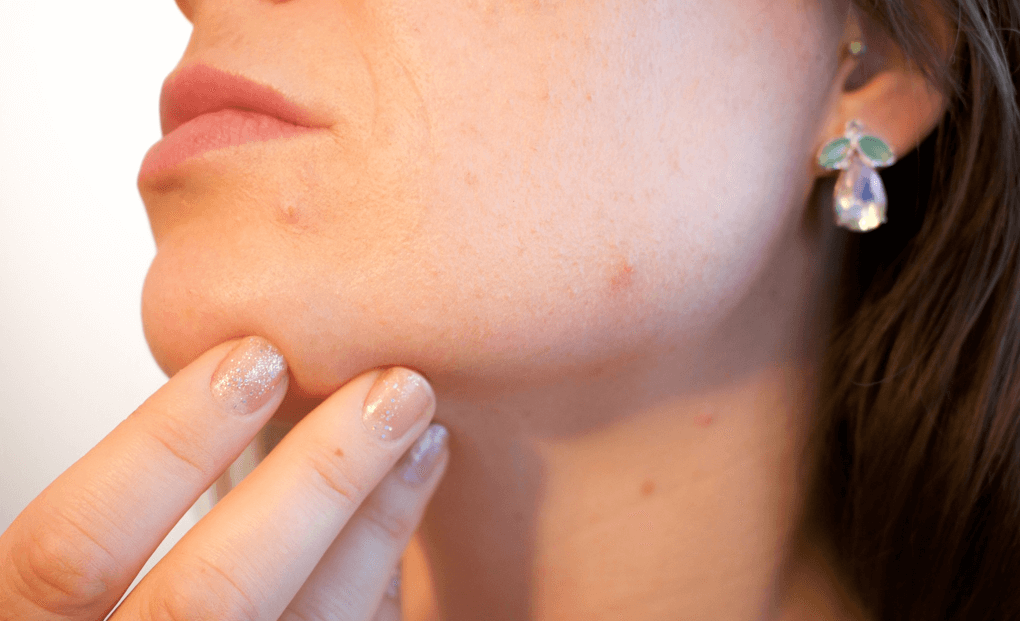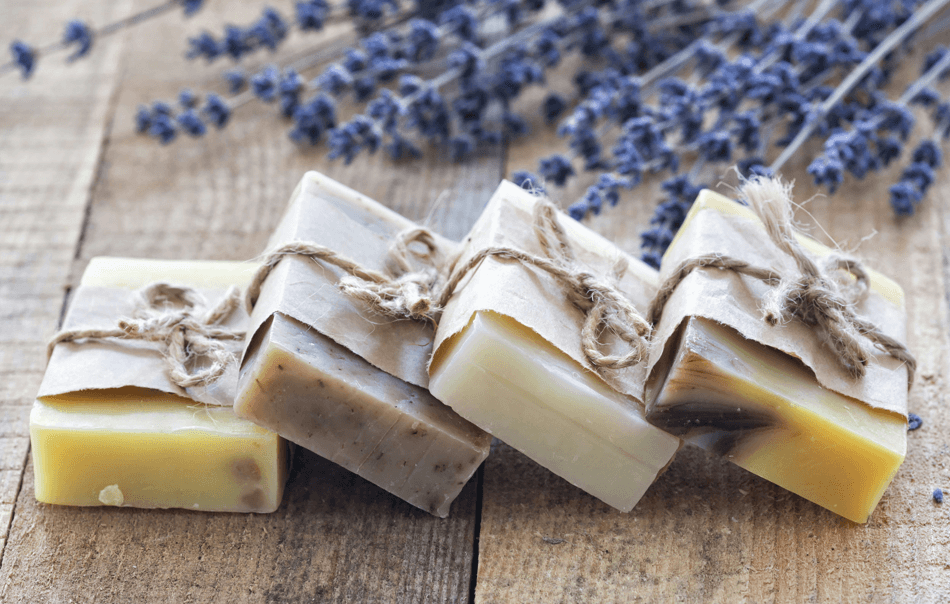Can Hyaluronic Acid Cause Acne? Unveiling the Truth Behind This Popular Skincare Ingredient

Key Takeaways:
- Hyaluronic acid is generally beneficial for the skin, but its misuse can lead to issues for acne-prone individuals.
- Understanding the proper use of hyaluronic acid can prevent potential skin problems, including acne.
- It's essential to consider skin type and product formulation when incorporating hyaluronic acid into a skincare routine.
Hyaluronic acid has become a buzzword in the skincare industry, celebrated for its hydrating and plumping effects on the skin. However, as with any skincare ingredient, there are concerns and questions about its effects on different skin types, particularly for those with acne-prone skin.
In this article we delve into whether hyaluronic acid can cause acne and how to properly use it to avoid any adverse effects.
Understanding Hyaluronic Acid and Its Role in Skincare
Hyaluronic acid is a naturally occurring substance found in the body's connective tissues, with a unique ability to retain moisture.
In skincare, it's lauded for its capacity to keep skin hydrated and maintain a youthful appearance. The molecule works by drawing water from the environment and the deeper layers of the skin to the skin's surface, ensuring skin cell turnover and overall skin health.
The Relationship Between Hyaluronic Acid and Acne
When it comes to acne, the primary concern is whether skincare products can clog pores and exacerbate the condition.
Hyaluronic acid, by nature, is not comedogenic, meaning it does not clog pores. However, if not used correctly, it can contribute to issues that might lead to acne breakouts, especially when combined with other products that are not suitable for acne-prone skin.
Is Hyaluronic Acid Good for Acne-Prone Skin?
For individuals with acne-prone skin, hyaluronic acid can be a double-edged sword. On one hand, it provides essential hydration that can help regulate excess sebum production—a common cause of acne.
On the other hand, if applied incorrectly or in conjunction with comedogenic products, it could potentially lead to clogged pores and subsequent acne breakouts.

Can Topical Hyaluronic Acid Cause Acne?
Topical hyaluronic acid is typically safe for most skin types, including oily and sensitive skin.
It's important to apply hyaluronic acid to slightly damp skin to ensure it draws moisture into the skin rather than out of it, which could lead to excessive dryness and irritation—factors that might indirectly contribute to acne.
The Impact of Hyaluronic Acid on Skin Hydration
Skin hydration is crucial for maintaining a healthy skin barrier function, which protects against environmental aggressors and prevents the overproduction of oil.
Hyaluronic acid serums and moisturizers help keep the skin hydrated, which can be beneficial in treating acne by preventing the conditions that lead to clogged pores and acne breakouts.

Incorporating Hyaluronic Acid into Your Daily Skincare Routine

To incorporate hyaluronic acid into a daily skincare routine, it's essential to choose products formulated for your specific skin type.
For acne-prone individuals, non-comedogenic hyaluronic acid serums or moisturizers are recommended. It's also advisable to perform a patch test to ensure no allergic reactions or irritation occurs.
Hyaluronic Acid and Its Complementary Skincare Ingredients
Hyaluronic acid works well with other skincare ingredients like vitamin C and salicylic acid.
Vitamin C can help improve skin texture and reduce the appearance of acne scars, while salicylic acid helps to treat acne by exfoliating dead skin cells and clearing clogged pores. Combining these with hyaluronic acid can enhance the skin benefits without clogging pores.
The Role of Hyaluronic Acid in Skin Cell Turnover
Skin cell turnover is a natural process that can be disrupted by acne.
Hyaluronic acid helps maintain the necessary hydration levels in the skin, which supports healthy skin cell turnover. This process is vital for healing acne scars and preventing the buildup of dead skin cells that can clog pores.
Hyaluronic Acid's Role in Strengthening Skin's Barrier Function
Hyaluronic acid is not just a hydrating powerhouse; it also plays a pivotal role in reinforcing the skin's barrier function. This is particularly beneficial for acne-prone skin, which often suffers from a compromised protective layer.
By enhancing the skin's natural defenses, hyaluronic acid helps to prevent environmental irritants and bacteria from exacerbating acne. A robust skin barrier also retains moisture more effectively, ensuring that the facial skin remains supple and less prone to irritation.
The regular use of a hyaluronic acid serum can fortify connective tissue within the dermis, further supporting the skin's resilience against external stressors. This reinforcement is crucial in maintaining the integrity of the skin's surface, which can be particularly vulnerable in individuals with inflammatory acne.
By bolstering the skin's barrier, hyaluronic acid not only aids in the management of acne but also contributes to the overall health and appearance of the skin.
It is essential to select high-grade hyaluronic acid products that are specifically designed to be non-irritating and to maintain the integrity of the skin's barrier function. Products that contain minimal additives and are labeled as "pure" hyaluronic acid are often more suitable for sensitive and acne-prone skin types.
The molecular weight of hyaluronic acid can influence its comedogenicity and its ability to penetrate the skin.
Low molecular weight hyaluronic acid tends to absorb more deeply into the skin, providing hydration from within, while higher molecular weight variants form a breathable film on the skin's surface. This film can help to lock in moisture without clogging pores, making it a preferable choice for those concerned about hyaluronic acid comedogenic properties.
Always check the product specifications to ensure compatibility with your skin type.
Scientific Research on Hyaluronic Acid and Acne Management
Recent scientific studies have shed light on the role of hyaluronic acid in managing acne-prone skin.
Research indicates that when used appropriately, hyaluronic acid can aid in reducing inflammation and promoting faster healing of acne lesions. This is due to its ability to modulate the skin's inflammatory response and support tissue repair.
Such findings suggest that incorporating hyaluronic acid into an acne treatment regimen could be beneficial, especially when combined with other proven acne-fighting ingredients.
Investigations into the use of hyaluronic acid for enhancing the skin's barrier function have shown promising results. A strong barrier function is crucial for acne-prone skin as it protects against environmental aggressors and prevents the overproduction of sebum, which can lead to acne.
By reinforcing the skin's natural defenses, hyaluronic acid can help to create a more resilient complexion that is less susceptible to the factors that contribute to acne development.
As research continues, the potential of hyaluronic acid as a supportive skincare product for acne management becomes increasingly evident.
The Compatibility of Hyaluronic Acid with Acne Medications
Integrating hyaluronic acid into a skin care regimen that includes acne medications can be highly advantageous. As many acne treatments tend to dry out the skin, a hyaluronic acid moisturizer can provide the necessary hydration without clogging pores or causing additional breakouts.
This is because hyaluronic acid is non-comedogenic, meaning it does not block pores, making it an ideal companion for topical retinoids or benzoyl peroxide, which are commonly prescribed for acne.
Furthermore, for those dealing with acne scarring, hyaluronic acid products can complement the healing process. The ingredient's moisture-binding properties help to plump the skin and reduce the appearance of scars, while its calming effect on irritated skin can alleviate redness associated with post-acne marks.
When used alongside other treatments, hyaluronic acid can help to accelerate skin recovery and enhance the efficacy of acne-fighting agents, leading to clearer, more radiant skin.
Hyaluronic Acid for Acne Scars: Does It Help?
Hyaluronic acid can also play a role in reducing the appearance of acne scars. Its hydrating properties help improve skin elasticity and texture, which can minimize the look of scarring.
However, it's not a standalone treatment for acne scars and should be used in conjunction with other acne treatments.
The Benefits of Hyaluronic Acid for Different Skin Types
Hyaluronic acid benefits all skin types by providing essential hydration. For oily skin, it can help balance oil production, while for dry skin, it prevents flakiness and irritation.
Even sensitive skin can tolerate hyaluronic acid well, as it's gentle and rarely causes adverse effects.
Hyaluronic Acid Injections and Acne: What You Need to Know
Hyaluronic acid injections, typically used for anti-aging purposes, can sometimes cause acne if the skin reacts to the physical disruption.
It's crucial to consult with a dermatologist before opting for hyaluronic acid injections, especially if you have acne-prone or sensitive skin.
Preventing Acne Breakouts When Using Hyaluronic Acid
To prevent acne breakouts when using hyaluronic acid, ensure that the rest of your skincare regimen is non-comedogenic and suited for acne-prone skin.
Avoid layering too many products, as this can lead to clogged pores, and always keep your skin clean before applying hyaluronic acid.
The Non-Comedogenic Nature of Hyaluronic Acid
Hyaluronic acid is not comedogenic, which means it does not contribute to clogged pores. However, the formulation of the product containing hyaluronic acid and the other ingredients it's paired with can influence whether it will cause acne.
Always check the full ingredient list of your skincare products.
How to Apply Hyaluronic Acid to Avoid Acne
When applying hyaluronic acid, use it on clean, slightly damp skin to maximize its hydrating effects. Follow up with a non-comedogenic moisturizer to lock in the hydration and protect the skin's barrier function.
Avoid using too much product, as this can lead to unnecessary buildup on the skin's surface.
Addressing the Myths: Hyaluronic Acid and Acne
There are many myths surrounding hyaluronic acid and acne. It's important to understand that hyaluronic acid itself does not cause acne.
Issues arise from improper use or combining it with inappropriate products. Educating yourself on the correct application and product selection is key to reaping the benefits of hyaluronic acid without the risk of acne.
Summary
Hyaluronic acid is a powerful skincare ingredient known for its hydrating properties and ability to improve skin health. While it is not directly responsible for causing acne, improper use or combining it with the wrong products can lead to issues for those with acne-prone skin.
By understanding how to correctly incorporate hyaluronic acid into your skincare regimen and choosing the right formulations, you can enjoy its benefits without fear of acne breakouts.
Frequently Asked Questions
Can I use hyaluronic acid if I have oily and acne-prone skin?
Yes, hyaluronic acid can be beneficial for oily and acne-prone skin as it helps maintain hydration without clogging pores. Choose a non-comedogenic hyaluronic acid product and apply it to slightly damp skin.
How often should I apply hyaluronic acid to avoid acne?
Hyaluronic acid can be used daily as part of your skincare routine. It's important to use it in moderation and follow the instructions on the product label to avoid overuse, which could potentially lead to skin issues.
Should I stop using hyaluronic acid if I notice acne breakouts?
If you experience acne breakouts after using hyaluronic acid, consider other factors such as additional skincare products or changes in your routine. It may not be the hyaluronic acid causing the issue. However, if you suspect it's the cause, discontinue use and consult a dermatologist for personalized advice.





